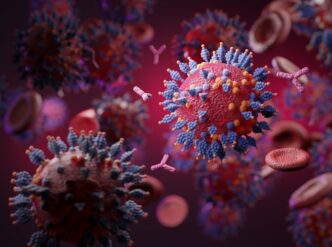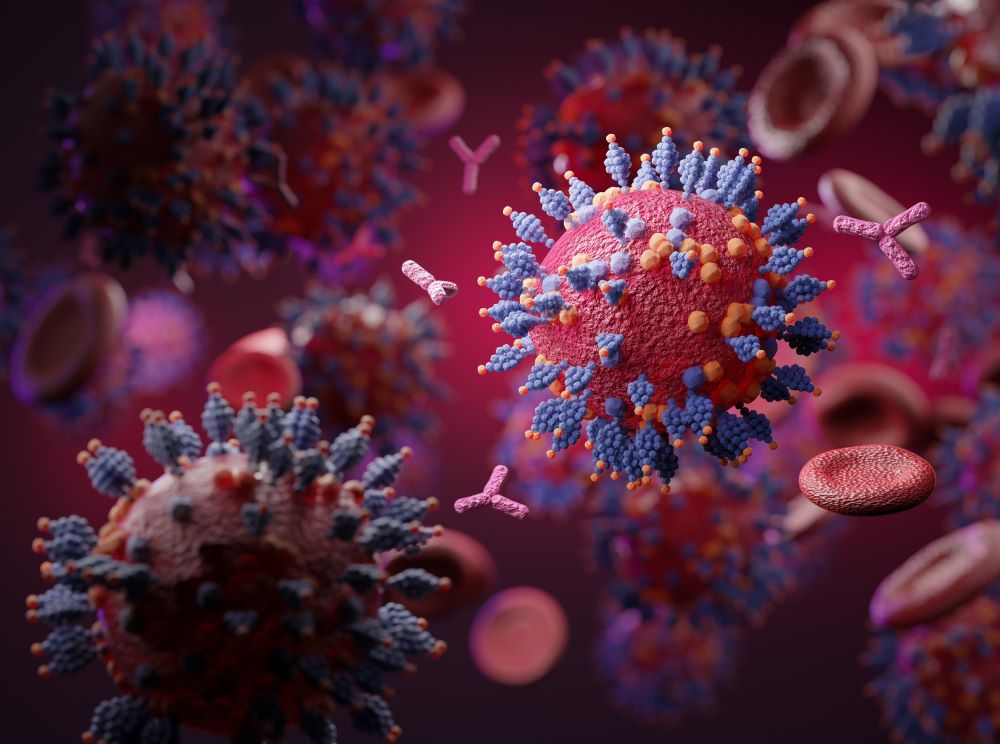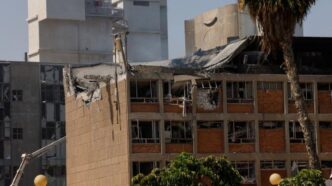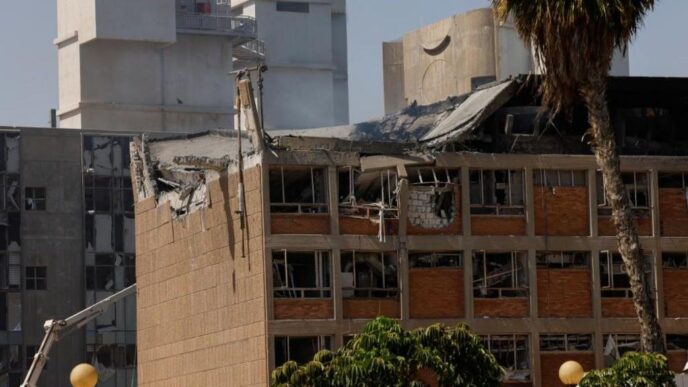A new coronavirus variant, NB.1.8.1, has begun spreading quickly across Asia and is now being reported in parts of Europe and the Americas.
While this highly contagious strain is raising global concern, health experts stress that the situation is under control for now.
The NB.1.8.1 variant has become dominant in China, Japan, and Hong Kong, with rising cases in Taiwan and Singapore.
According to recent reports, emergency room visits and hospitalisations in these regions have surged in recent weeks.
Despite the rising numbers, the good news is that this variant does not appear to be more deadly.
A Moscow-based doctor told bne IntelliNews, “there have been few fatalities and victims are being treated with regular off-the-shelf medication for viral infections.”
This provides some relief compared to earlier waves of COVID-19.
The new strain belongs to the Omicron family and is believed to be more infectious than earlier variants.
It carries additional spike mutations such as T22N, F59S, and T478I, which may allow it to stick to human cells more easily.
Doctors believe this is what makes it spread faster.
it is “possibly among the most contagious of all SARS-CoV-2 variants to date.”
However, the World Health Organization (WHO) has not found any proof that the NB.1.8.1 variant causes more severe illness than its predecessors.
“It is not a killer,” the report clarified. This statement has given many people a reason to stay calm and hopeful.
Even so, the symptoms are still very uncomfortable. People who have caught the virus report “aches and constant fatigue”, along with fever, sore throat, and muscle pain.
In Moscow, staff at bne IntelliNews confirmed they have been infected and are in self-isolation.
While doctors say the spread is growing, they have not advised lockdowns. Instead, they recommend rest, fluids, and simple medication.
In just four weeks, the number of NB.1.8.1 cases jumped from 2.5% to 10.7% of global COVID-19 sequences, according to data from GISAID.

In Hong Kong, authorities are advising the public to wear masks again in crowded places and on public transport.
They said there has been a “significant increase” in emergency room visits linked to COVID-19.
Meanwhile, Taiwan is already stocking up on vaccines and antiviral treatments.
In Singapore, COVID cases doubled in just one week, jumping from 16,000 to 33,000 confirmed infections.
Across the U.S., the variant has been detected in travellers arriving from Asia and Europe.
States like California, Washington, and New York have reported cases.
Genomic tracking found the NB.1.8.1 COVID variant in travellers from places like Japan, France, China, and the Netherlands.
Although the variant is spreading, WHO believes it is part of the virus’s natural evolution.
Since February, global COVID activity has been rising again, with test positivity rates reaching 11% numbers not seen since July 2024.
Vaccine makers like Moderna and Pfizer have confirmed that their current shots still protect against severe illness.
Though the U.S. has limited vaccine access to older adults and those with medical conditions, there is hope for broader coverage soon.
Governments are avoiding full lockdowns and instead focusing on education and vaccine readiness.
The response this time has been notably restrained, reports show, citing the public’s exhaustion from repeated pandemic measures.
Furthermore, the timing of this spread fits usual patterns.
In past years, COVID-19 has peaked during summer and winter.
This situation shows us that while the pandemic may no longer dominate headlines, the virus is still present.
The NB.1.8.1 COVID variant reminds the world to remain alert but not alarmed.
The WHO is urging countries to strengthen their surveillance systems and continue promoting safe practices.













